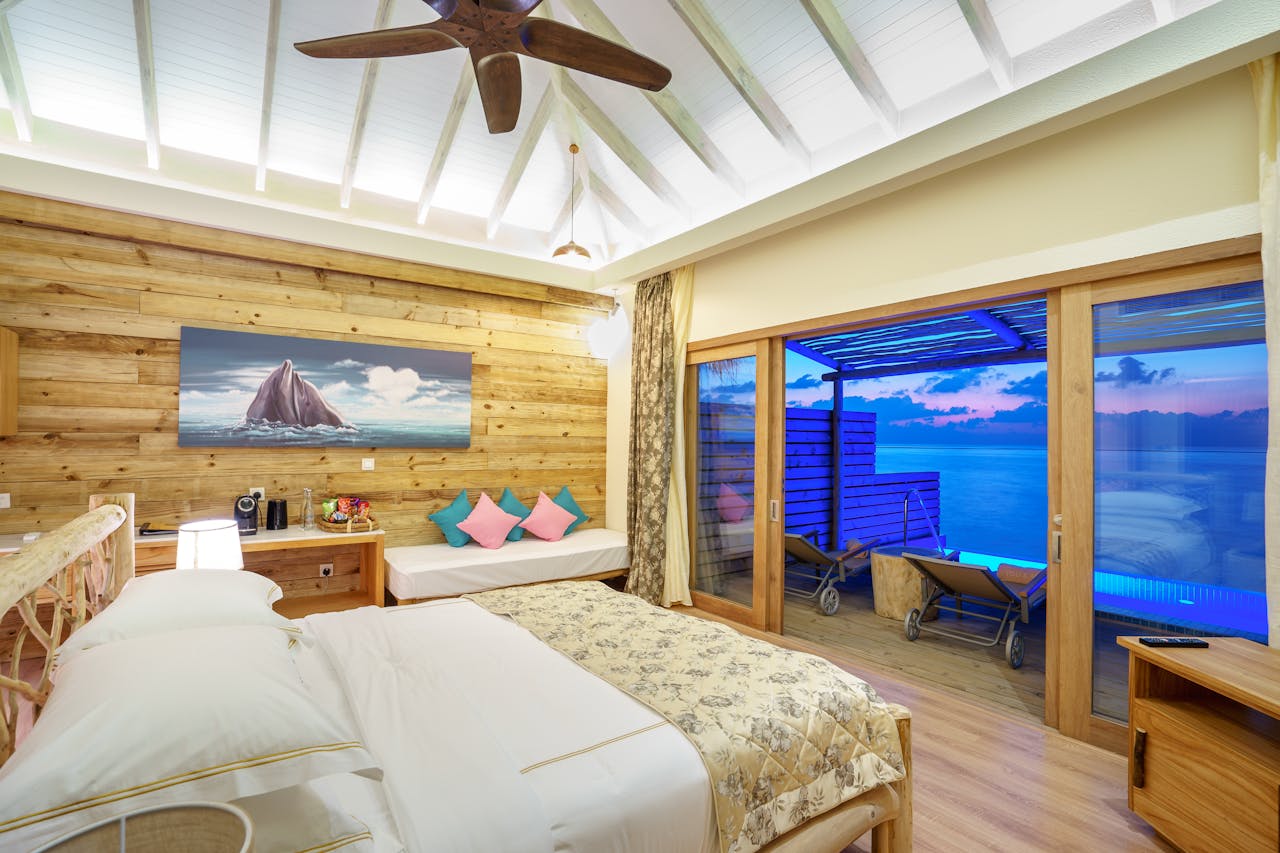Converting a residential property into a bed and breakfast (B&B) in the UK can be an exciting venture but involves several legal requirements. From planning permission to insurance, specific regulations must be adhered to for a successful and compliant operation. This article delves into these essential aspects, offering a comprehensive guide to help you navigate the process.
Planning Permission and Building Regulations
Before embarking on your B&B project, you need to address planning permission and building regulations. These legal requirements ensure your property meets local and national standards for safety, usability, and impact on the surrounding community.
Cela peut vous intéresser : What are the most effective strategies for reducing property management costs in the UK?
Planning Permission
Planning permission is a crucial first step when converting a residential property into a B&B. You must apply for this from your local council. The requirement depends on several factors, including the scale of your business and the nature of the material change. If you plan to make significant alterations to the property, such as adding more rooms or changing its exterior, you will likely need planning permission.
-
Permitted Development: Small-scale changes may fall under permitted development rights, which allow specific changes without full planning permission. However, regulations vary by location, so consulting your local planning authority is essential.
Lire également : What are the best methods for UK homeowners to increase property value through sustainable landscaping?
-
Material Change of Use: Transforming a residential dwelling into a B&B constitutes a material change of use, necessitating planning permission. This ensures the property is suitable for commercial use and adheres to local zoning laws.
-
Inn Establishment to Hotel Inn: If your B&B evolves into a larger hotel inn, further planning permission will be required. This transition involves a different set of regulations due to the increased number of guests and potential local impact.
Building Regulations
While planning permission addresses your property’s external and usage aspects, building regulations focus on safety, accessibility, and efficiency.
-
Safety and Accessibility: Your property must comply with fire safety, health, and accessibility standards. This includes installing smoke alarms, fire exits, and ensuring guest rooms are accessible to individuals with disabilities.
-
Structural Integrity: Any renovations must meet building regulations to ensure the structural integrity of the property. This includes modifications to the building’s layout, electrical systems, and plumbing.
-
Energy Efficiency: The UK’s building regulations also emphasize energy efficiency. This involves proper insulation, energy-efficient windows, and sustainable heating systems.
Tax Implications and Legal Requirements
Understanding the tax implications and legal requirements of running a B&B is crucial for maintaining compliance and avoiding potential penalties. These considerations encompass stamp duty, land tax, and insurance.
Stamp Duty and Land Tax
When converting a property into a B&B, stamp duty land tax (SDLT) may apply if you purchase a new property for this purpose. The amount of SDLT you pay depends on the property’s value and intended use.
-
Residential vs. Non-Residential: Different rates apply to residential and non-residential properties. Understanding these distinctions helps you budget effectively for your acquisition.
-
Property Transactions: Effective transaction planning can minimize your SDLT liability. Consulting a tax advisor can provide insights into potential reliefs and exemptions.
-
Land Tax Compliance: Ensuring compliance with land tax regulations prevents legal complications. This involves accurate reporting of transactions and timely payment of taxes.
Insurance Requirements
Insurance is a critical component of running a B&B. It safeguards your property, guests, and business operations against unforeseen events.
-
Buildings Insurance: Protects the physical structure of your property against damage from events like fires, floods, and storms. This insurance is vital for maintaining the property’s integrity and guest safety.
-
Contents Insurance: Covers the belongings within your property, including furniture, appliances, and personal items. This insurance ensures you can replace valuable items in case of theft or damage.
-
Public Liability Insurance: Crucial for protecting your business against claims from guests who suffer injuries or damages while staying at your B&B. This insurance covers legal fees, medical expenses, and compensation claims.
-
Employer’s Liability Insurance: If you hire staff to help run your B&B, this insurance is legally required. It covers claims from employees who suffer work-related injuries or illnesses.
Local Considerations and Business Planning
Navigating the local considerations and developing a robust business plan is essential for a successful B&B. These aspects involve understanding local regulations, market research, and effective transaction management.
Local Regulations and Permissions
Local regulations vary widely across the UK, making it crucial to understand your area’s specific requirements.
-
Local Council Consultations: Engaging with your local council helps identify any additional permissions or restrictions. This includes waste management, noise control, and parking regulations.
-
Community Impact: Assessing the impact of your B&B on the local community is essential. This involves addressing potential concerns from neighbors and ensuring your business operations align with local values.
-
Environmental Considerations: Implementing eco-friendly practices enhances your B&B’s appeal and compliance with local environmental guidelines. This includes waste reduction, energy efficiency, and sustainable sourcing.
Effective Business Planning
A well-thought-out business plan is the foundation of a successful B&B. This involves market research, financial planning, and strategic marketing.
-
Market Research: Understanding your target audience and competition is crucial. Conducting surveys, analyzing online reviews, and visiting other B&Bs provide valuable insights into guest preferences and industry trends.
-
Financial Planning: Developing a detailed financial plan ensures your B&B remains financially viable. This includes budgeting for renovations, operating costs, and marketing expenses. Consulting a financial advisor can help optimize your budget and identify potential funding sources.
-
Strategic Marketing: Effective marketing attracts guests and builds your B&B’s reputation. Utilizing social media, online booking platforms, and local advertising helps reach a broader audience. Creating a unique brand identity and exceptional guest experiences fosters positive reviews and repeat business.
Legal Compliance and Operational Considerations
Ensuring legal compliance and addressing operational considerations are vital for running a successful B&B. This section covers legal documentation, guest management, and operational efficiency.
Legal Documentation and Contracts
Proper legal documentation and contracts protect your business and guests. These documents clarify expectations, responsibilities, and legal obligations.
-
Property Will: Creating a property will ensures your B&B assets are distributed according to your wishes in case of unforeseen events. This provides peace of mind and prevents potential legal disputes.
-
Guest Contracts: Developing clear guest contracts outlines house rules, payment terms, and cancellation policies. This minimizes misunderstandings and enhances the guest experience.
-
Supplier Agreements: Establishing contracts with suppliers ensures reliable services and products. This includes agreements with food suppliers, cleaning services, and maintenance contractors.
Guest Management and Operational Efficiency
Efficient guest management and operational practices enhance your B&B’s reputation and profitability.
-
Booking Systems: Implementing reliable booking systems streamlines reservations, payments, and guest communications. Online booking platforms and property management software simplify these processes.
-
Housekeeping and Maintenance: Maintaining high standards of cleanliness and upkeep ensures guest satisfaction and safety. Regular maintenance schedules prevent issues and extend the lifespan of your property.
-
Guest Experience: Providing exceptional guest experiences fosters positive reviews and repeat business. This involves personalized touches, local recommendations, and attentive service.
High-Risk Considerations
Operating a B&B involves high-risk considerations that require proactive planning and mitigation.
-
Health and Safety: Ensuring health and safety standards prevent accidents and protect guests. Regular safety audits, staff training, and compliance with health regulations are essential.
-
Risk Management: Developing a risk management strategy identifies potential hazards and outlines response plans. This includes natural disasters, medical emergencies, and security threats.
-
Legal Liabilities: Understanding and mitigating legal liabilities protect your business from lawsuits and penalties. This involves compliance with employment laws, licensing requirements, and contractual obligations.
Converting a UK residential property into a B&B requires thorough planning, legal compliance, and efficient operational practices. Addressing planning permission, building regulations, tax implications, and insurance ensures a successful and compliant business. Engaging with local authorities, developing a robust business plan, and focusing on guest experiences enhance your B&B’s reputation and profitability. By navigating these legal requirements and operational considerations, you can transform your residential property into a thriving B&B, offering memorable experiences for your guests and a rewarding venture for yourself.











